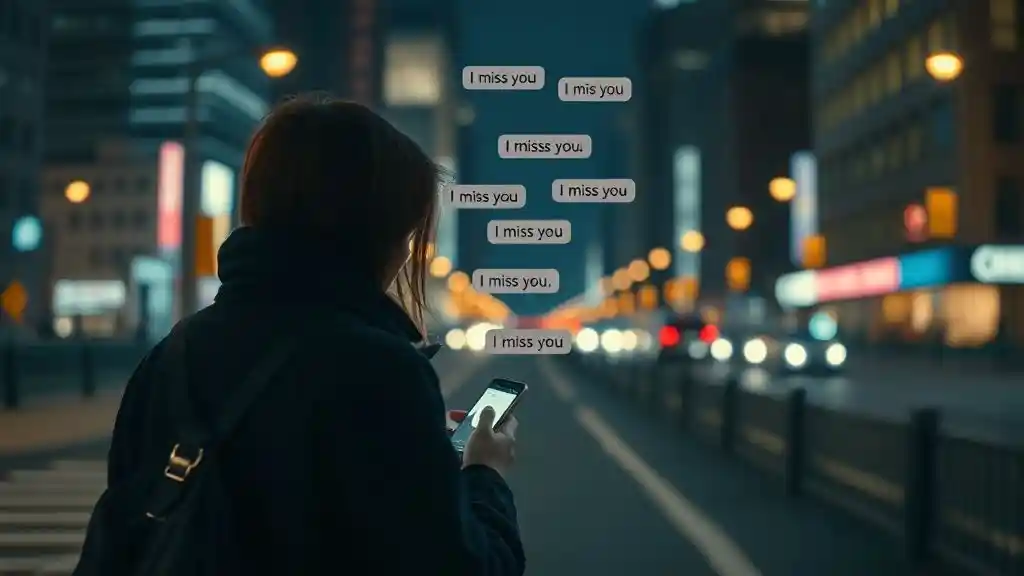
It starts with an overwhelming rush: constant texts, voice notes that sound like poetry, video calls that stretch into sunrise. You feel chosen—like someone finally sees you.
But slow down. Because this isn’t always love.
Sometimes, it’s something darker wearing love’s mask.
What Is Love Bombing in the Digital Age?
Before, love bombing was a whirlwind of attention and gifts in person. Now, it’s DMs, rapid-fire emojis, constant check-ins, and big promises too soon.
Love bombing in the digital age is when someone uses digital communication—texts, social media, video calls—to create an illusion of deep intimacy early on. But it’s not about love. It’s about control.
You may think:
- “He texts me every five minutes because he cares.”
- “She just wants to know where I am because she’s anxious.”
But in reality?
They’re laying psychological traps.
5 Red Flags of Digital Love Bombing
Here’s what digital-age love bombing really looks like:
1. Nonstop Contact That Feels Romantic… Until It Doesn’t
- Hourly texts
- Dozens of “I miss yous” too soon
- Facetime marathons nightly
It starts as flattery. But slowly, your space disappears.

2. Intense Declarations Too Fast
- “You’re my soulmate” after 3 days
- “I’ve never felt this way before”
In healthy relationships, love grows. In love bombing, it explodes. Fast feelings aren’t proof of connection—they’re often a smokescreen.
3. Social Media Love Showcases
- Tagging you constantly
- Posting “couple goals” while barely knowing you
- Public declarations designed for attention
It’s not just about loving you—it’s about owning the image of you.
4. Guilt-Tripping Disguised as Vulnerability
- “If you don’t reply, I spiral.”
- “I’ve been hurt before, please don’t leave me.”
Emotional manipulation wrapped in a trauma narrative is the new power play.
5. Creating False Intimacy via Trauma Bonding
- Oversharing deep childhood wounds
- Dragging you into intense, late-night emotional convos
- Using shared pain to glue you to them
In 2025, trauma bonding is often mistaken for connection. But connection built on pain isn’t love—it’s emotional hostage-taking.
Why It’s Harder to Spot Now (And Why That’s Dangerous)
In the digital age, love bombing doesn’t need roses or dinners. All it needs is data, bandwidth, and a few well-timed messages. You feel:
- Needed
- Adored
- Safe
That’s what makes love bombing in the digital age so toxic—it feels like love, but functions like control.
How It Hooks You So Fast
Why do so many smart, emotionally aware people fall into this?
Online love bombing uses your brain against you, flooding your body with dopamine and oxytocin. It’s chemical warfare disguised as romance.

When “Too Much” Becomes Too Dangerous
In the context of love bombing in the digital age, many victims don’t recognize it until they’re emotionally disoriented, drained, or deeply entangled. Why? Because the manipulation is dressed as love. They flood your DMs with affection, praise, compliments, and “I’ve never felt this before” statements — and you mistake it for deep connection. But underneath? It’s control.
It Doesn’t Feel Safe to Say “No”
A chilling sign of love bombing via digital communication is when you start adjusting your behavior to avoid upsetting them.
- You take calls even when you’re tired — just to not make them feel “abandoned.”
- You respond to texts immediately out of fear they’ll spiral or guilt-trip you.
- You start apologizing for needing space, because they frame distance as rejection.
This isn’t healthy intimacy — it’s coercion camouflaged as closeness.
You’re Being Isolated — Subtly
Love bombers often do this next: they slowly make you question your existing connections.
- “Your friends don’t really get us the way I do.”
- “I just feel like your sister doesn’t respect what we have.”
- “I wish you didn’t post so much online. That should be private between us.”
The goal? That’s digital manipulation in relationships — and it happens in private messages, not in person. That’s what makes it harder to spot.
Future-Faking Becomes a Control Tool
One of the dirtiest weapons in love bombing in the digital age is future-faking — and it’s alarmingly common in online dating.
They text you things like:
- “We’ll travel to Italy someday. I can already picture it.”
- “I can’t wait to raise kids with someone like you.”
- “You’re my last relationship. I already know it.”
You feel swept off your feet — but they’re just feeding your fantasies to anchor you emotionally, fast. None of it is real yet, and that’s the trick. You’re emotionally invested in a version of them that doesn’t exist.

Why It Wrecks You So Deeply
Love bombing isn’t just about manipulation — it’s about neurochemical warfare. When someone bombards you with affection and validation, your brain releases dopamine, oxytocin, even serotonin. You feel loved. High. Needed.
But when that attention gets pulled back — even slightly — you crash. You chase the feeling. You become hooked on their approval.
That’s not love. That’s addiction. And it’s how emotional manipulation via text becomes more dangerous than physical proximity — because it can happen 24/7. There’s no off button.
You Start Doubting Yourself
Here’s the most dangerous part: once you realize something feels off, you won’t trust yourself.
- You’ll think you’re being “too sensitive.”
- You’ll rationalize their behavior: “He’s just really intense because he cares.”
- You’ll silence your intuition.
And guess what? That’s exactly what love bombers want. Because when you stop trusting your gut, they control the narrative. That’s when you lose yourself.
How to Break the Cycle
If you’re wondering whether you’re experiencing love bombing in the digital age, here’s what to do:
Pause Before You Reply
Instead of replying in real-time, take space. Time reveals intention. A person genuinely invested in you won’t punish you for taking a breath.
Revisit the Pattern
Look at your chats from the beginning. Has the intensity been constant from day one? Have they respected your boundaries?
Talk to Someone Who’s Grounded
You need an outside perspective — a friend who isn’t swooned by grand gestures. Send them the messages.
Final Warning — This Isn’t Just About Love
Online dating red flags are rarely black and white. But love bombing is not about you — it’s about them needing control, validation, and dominance, disguised as “romantic connection.”
And in 2025, it’s more polished than ever.
These manipulators know how to talk, text, flirt, gift, and mirror your desires in seconds. But eventually, their real self bleeds through — and if you’re already trauma-bonded, it’s hard to leave.
But you must. Or it will consume you.
What Healthy Love Looks Like (By Contrast)
Let’s be clear: real love doesn’t feel like a constant performance.
- It respects boundaries.
- It builds slowly.
- It doesn’t pressure or guilt you.
- It feels safe in silence.
- It leaves you feeling seen, not drained.

Final Thought: Wake Up Before You Burn Out
You’re not “too damaged” to find real love. You’re not “too cold” for pulling away from someone who overwhelms you. And you’re not “ungrateful” for questioning grand gestures that come too soon.
You’re wise. You’re learning. And you’re allowed to protect your peace — even if it means walking away from someone who made you feel like the sun… for a week.
Love bombing in the digital age isn’t just a trend. It’s a growing epidemic. One that needs to be called out — boldly, publicly, and without shame.
You don’t owe anyone your emotional surrender.
Not in person.
Not online.
Not ever.
Disclaimer: This post is for informational and emotional support purposes only. Every relationship is unique, and this is not professional legal, medical, or mental health advice. Read our full disclaimer.
Affiliate Disclosure: Some links in this post may be affiliate links. If you make a purchase through them, I may earn a small commission at no extra cost to you. Learn more here.
Pingback: Digital Stalking After Breakup — Why It’s More Serious Than You Think - Love and Breakups
Pingback: Love bombing, hvordan kunstig intelligens brukes til å manipulere tillit og følelser – Antiglobalisten
Pingback: What Women Want in Love: Desires Behind - Love and Breakups
I’m still learning from you, while I’m trying to achieve my goals. I certainly enjoy reading all that is written on your website.Keep the tips coming. I liked it!